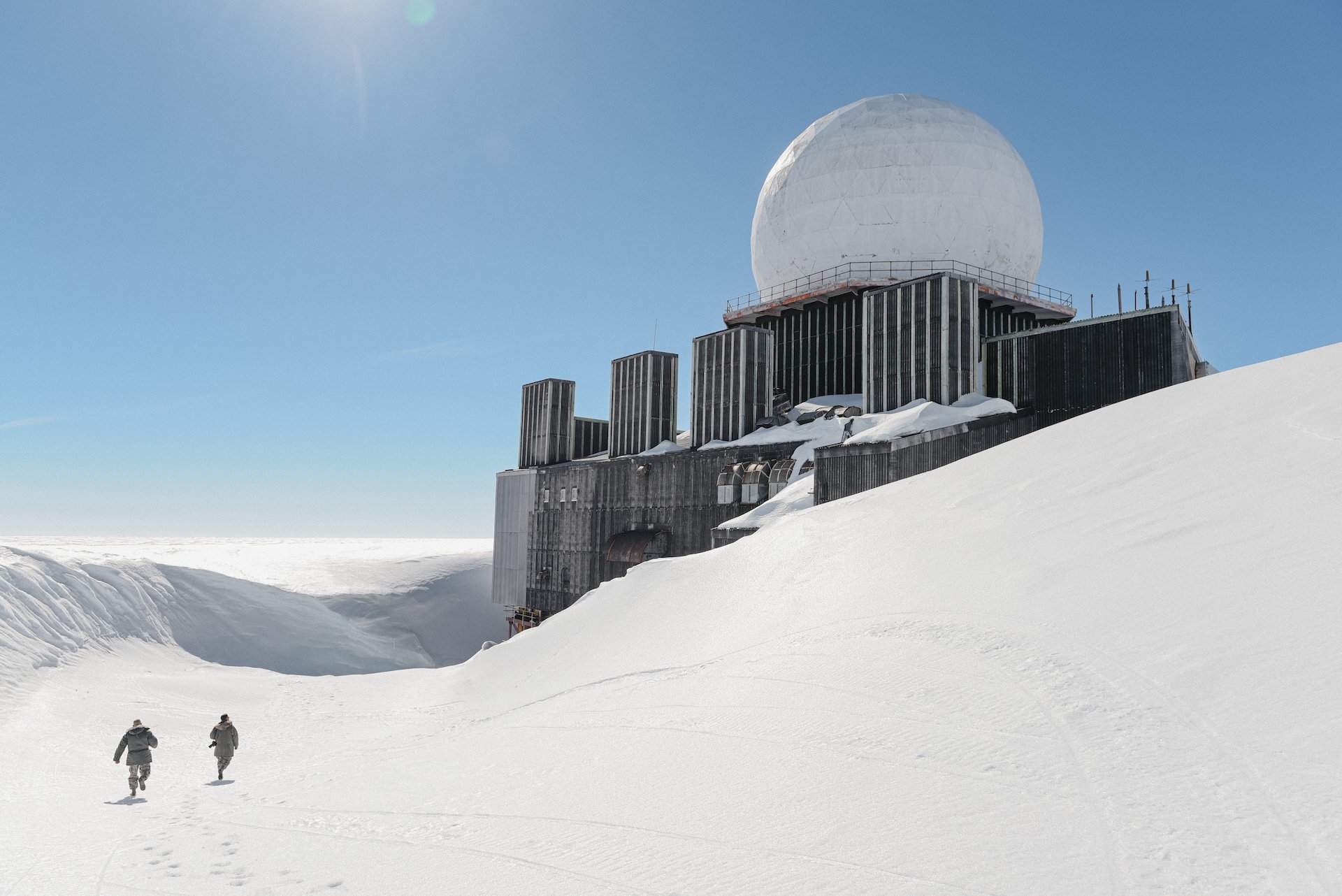US Military Control Of Greenland? Examining The Pentagon's Plan And Its Ramifications

Table of Contents
The Pentagon's Strategic Interests in Greenland
The Pentagon's interest in Greenland stems from its undeniable strategic value. Its geographical location, bordering the Arctic Ocean, provides unparalleled access to critical shipping lanes and offers a vantage point for monitoring activity in the region, particularly that of Russia. The potential for resource extraction, including rare earth minerals and hydrocarbons, further fuels the US interest. The implications of climate change in the Arctic, including easier access to previously inaccessible areas, also play a significant role in the US's Arctic military strategy.
- Access to strategic air and naval bases: Thule Air Base, already a significant US Air Force presence in Greenland, could be expanded, bolstering US military capabilities in the Arctic.
- Monitoring Russian activity in the Arctic: Greenland's proximity to Russia allows for enhanced surveillance of Russian military movements and potential expansion in the region.
- Potential for establishing early warning systems for missile launches: Greenland's location offers a strategic advantage for early warning systems against potential ballistic missile launches.
- Securing access to valuable minerals and resources: The exploitation of Greenland's rich mineral deposits is seen as a critical component of US resource security.
- The impact of climate change on Arctic access: The melting Arctic ice opens up new shipping routes and resource access, increasing the strategic importance of Greenland's location.
Greenland's Perspective and Sovereignty Concerns
While the US views Greenland as strategically important, Greenland's perspective on the increased US military presence is complex. Greenland's government is navigating a delicate balance between its desire for economic development and its commitment to preserving its sovereignty and cultural identity. Its relationship with Denmark, a key partner, also impacts its decisions concerning foreign military presence. Public opinion in Greenland remains divided, with some welcoming the economic opportunities associated with increased US involvement, while others express concerns about environmental damage and potential threats to Greenlandic autonomy.
- Greenland's desire for economic independence and development: Increased US investment could boost the Greenlandic economy, but there are anxieties about potential exploitation.
- Balancing its relationship with the US, Denmark, and other global powers: Greenland must carefully manage its relationships with various global actors to maintain its independence and security.
- Public opinion in Greenland regarding the US military presence: There’s ongoing debate in Greenland about the economic benefits vs. the potential risks of increased US military influence.
- Concerns about environmental damage and potential threats to Greenlandic culture: Environmental protection and the preservation of Greenlandic culture are crucial considerations for the Greenlandic government.
Geopolitical Ramifications and International Reactions
The potential expansion of the US military presence in Greenland has significant geopolitical ramifications. It could exacerbate tensions between the US and Russia, already locked in a struggle for influence in the Arctic. China's growing interest in the Arctic also adds another layer of complexity to the situation. International organizations like the Arctic Council will play a critical role in shaping the future governance of the region and ensuring that Arctic cooperation isn't undermined by increasing militarization.
- Increased tensions between the US and Russia in the Arctic: A more prominent US military presence could be viewed by Russia as an aggressive move, escalating tensions in the region.
- China's growing interest in the Arctic and its potential response: China’s increasing investment in Arctic infrastructure and resources could lead to increased competition and potentially conflict with the US.
- The role of international organizations like the Arctic Council: The Arctic Council will be vital in managing the competing interests of various nations in the Arctic.
- Potential impact on international law and the future of Arctic governance: The increasing militarization of the Arctic could challenge existing international laws and treaties governing the region.
The Economic Impact on Greenland
The economic impact of a strengthened US military presence in Greenland is multifaceted. While increased US investment could generate jobs and infrastructure development, it also poses risks. Dependence on US military spending could create vulnerabilities, and potential environmental damage could outweigh economic benefits. Careful consideration of long-term economic sustainability and diversification is crucial for Greenland.
Conclusion
The issue of US military control of Greenland is a complex tapestry woven with threads of strategic interests, sovereignty concerns, and international relations. Greenland faces a delicate balancing act: seeking economic development and security while preserving its cultural identity and safeguarding its hard-won autonomy. Understanding the US military's plans for Greenland is crucial not just for the region's future, but also for the broader geopolitical dynamics of the Arctic and the world. We urge readers to delve further into this critical topic by researching the various perspectives and engaging with the ongoing debate surrounding the future of US military presence in Greenland, exploring resources from reputable news outlets, academic journals, and government reports to gain a comprehensive understanding of this evolving situation.

Featured Posts
-
 Close Call Knicks Secure Second Straight Overtime Win Against Bulls
May 11, 2025
Close Call Knicks Secure Second Straight Overtime Win Against Bulls
May 11, 2025 -
 Car Dealerships Push Back Against Government Ev Mandates
May 11, 2025
Car Dealerships Push Back Against Government Ev Mandates
May 11, 2025 -
 Karlyn Pickens Historic 78 2 Mph Pitch Redefining Ncaa Softball
May 11, 2025
Karlyn Pickens Historic 78 2 Mph Pitch Redefining Ncaa Softball
May 11, 2025 -
 Princess Beatrice On Her Parents Split A Candid Conversation
May 11, 2025
Princess Beatrice On Her Parents Split A Candid Conversation
May 11, 2025 -
 Lily Collins A Look At Her New Calvin Klein Photoshoot
May 11, 2025
Lily Collins A Look At Her New Calvin Klein Photoshoot
May 11, 2025
